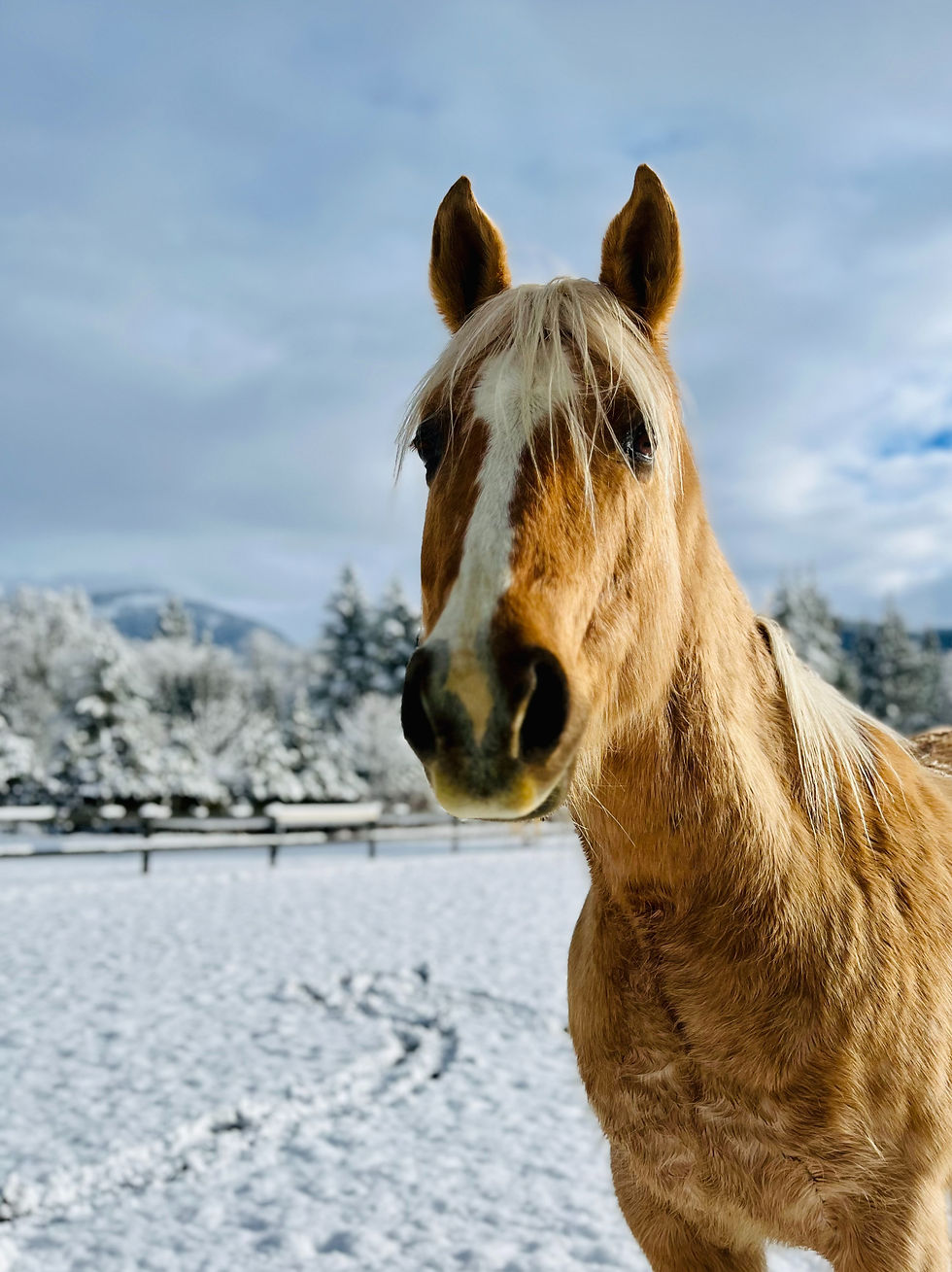Trauma-Informed Horse Trainer
- Lauren Fraser, MSc, FFCP

- Mar 16
- 1 min read

I recently took Dr Emma Lethbridge's Trauma-Informed Horse Trainer Certificate program, through the Understand Horses Learning Platform.
This outstanding program covers in-depth how trauma develops and affects horses, and how to help traumatized horses recover. It was also a nice reminder that throughout my career I have consistently been approaching resolving trauma in horses in a trauma-informed way.
Signs of Trauma in Horses
While we can't easily measure physiological changes such as adrenaline or cortisol levels that indicate trauma, we can see signs of trauma in horses through changes in their behaviour. For example, traumatized horses may show:
• Increased anxiety and hypervigilance
• Increased startle responses or restlessness
• Anhedonia, a reduced ability to engage in activities that once brought pleasure
• Passivity
• New or increased aggression
• Changes to sleep, appetite, and social relationships
• Increased attempts to escape or avoid specific things or events
• A sense of powerlessness and depression-like states
Help for Traumatized Horses
In order to overcome trauma, traumatized horses need specific care. They need to have their species-specific needs met, they must feel safe, and they need help rebuilding trust in people. To avoid further retraumatization, low-stress, evidence based techniques must also be used when working with triggers for fear and trauma in horses.
How Trauma Impacts Horses
This article provides more information on how trauma impacts horses.
While there are no quick-fixes, traumatized horses can recover with the right support. Just like with people, horses who have experienced trauma may need weeks, months, or sometimes even years to recover.
If you think your horse has experienced trauma, please get in touch.




Comentários